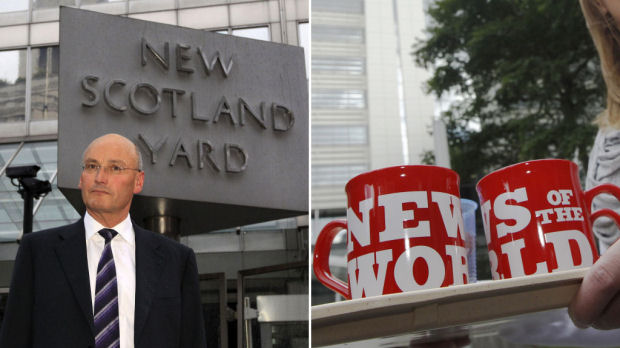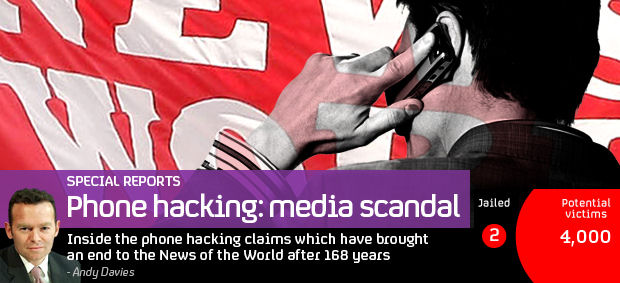Met employed 10 more ex-News International staff
Ten former News International staff have worked at the Met Police, outgoing Commissioner Sir Paul Stephenson revealed as he defended the Met’s role in the phone-hacking scandal in front of MPs.

These ten, who work in the public affairs department at the Metropolitan Police, are in addition to the two other former News International employees known to have worked for the force – translator Alex Marunchak and former News of the World deputy editor, Neil Wallis.
Sir Paul Stephenson, outgoing Commissioner of the Met Police, revealed the connections as he faced MPs to defend the role of the police in the phone-hacking scandal and its relationship with News International.
Giving evidence to the Home Affairs Select Committee, Sir Paul – who resigned from the Met on Sunday – said that former News International employees and interns accounted for almost a quarter of the 45 staff at the Met’s department of public affairs.
“I understand that there are ten members of the DPA staff who have worked in News International in the past, in some cases journalists, in some cases undertaking work experience,” he said.
It’s about making decisions that may be difficult and personally painful. And that’s leadership and that’s why I’m going. Sir Paul Stephenson
However he maintained that he had “no reason to believe” that relationships between the Met and News International figures had affected investigations into phone hacking, including the review of the initial inquiry conducted by Assistant Commissioner John Yates. Mr Yates has also resigned.
Sir Paul also said that, until recently, he had had no reason to believe that the initial inquiry into phone hacking was not full and successful and he believed his staff when they told him there was no new evidence when they looked at the inquiry again.
He said phone hacking had not been his priority when he became Commissioner, in 2009.
“When the Nightstalker was not caught, with counter-terrorism, with the murder of Stephen Lawrence still unsolved, they were priorities for me, phone hacking was not,” he said.
Connections with News International
He also defended his own decision to accept hospitality from a spa where Mr Wallis – who was arrested as part of the phone-hacking investigation last week – worked as a consultant.
He said Mr Wallis’ name only began to be linked with phone-hacking earlier this year, and had not been considered before this, while he worked for the Met. Additionally he said he only became aware of Mr Wallis’s connections with the spa he stayed at, Champneys in Hertfordshire, this weekend – and accepted the hospitality from the owner, a close family friend.
“It was damnably unlucky Wallis was connected to this and I was devastated when I heard,” he said. He added that he also only recently found out that Mr Wallis’s daughter was employed by the Met, another link which has raised eyebrows. Mr Wallis was employed by the Met in 2009 and 2010 as a consultant.
Read more on phone hacking: the connections between the key players
Sir Paul also stressed that his resignation statement, which many took to be a swipe at Prime Minister David Cameron, was not intended in that way, and outlined his “regret” that Mr Wallis had been hired at all by the Met.
“With the benefit of what we now know I regret we went into that contract because it’s embarrassing,” he said.
Finally, he said he resigned because he did not want to become the story. He also said he believed the Met would re-gain public trust – particularly because it is instigating new practices and standards for how it deals with the media.
“I’m going because I’m a leader. Leadership is not about popularity, it’s not about the press, it’s not about spinning. It’s about making decisions that put your organisation, your mission and the people you lead first. It’s about doing things that will make them proud of the leaders and that’s much different from being popular with them.
“It’s about making decisions that may be difficult and personally painful. And that’s leadership and that’s why I’m going.”
-
Latest news
-
Tim Booth of the band James’ on agism in music, topping the charts and AI6m

-
As India goes to the polls in the world’s largest election – what do British-Indians think?6m

-
Tees Valley: Meet the candidates in one of the biggest contests coming up in May’s local elections4m

-
Keir Starmer says public sector reform will be a struggle7m

-
Nicola Sturgeon’s husband Peter Murrell charged with embezzlement of funds from SNP1m

-





